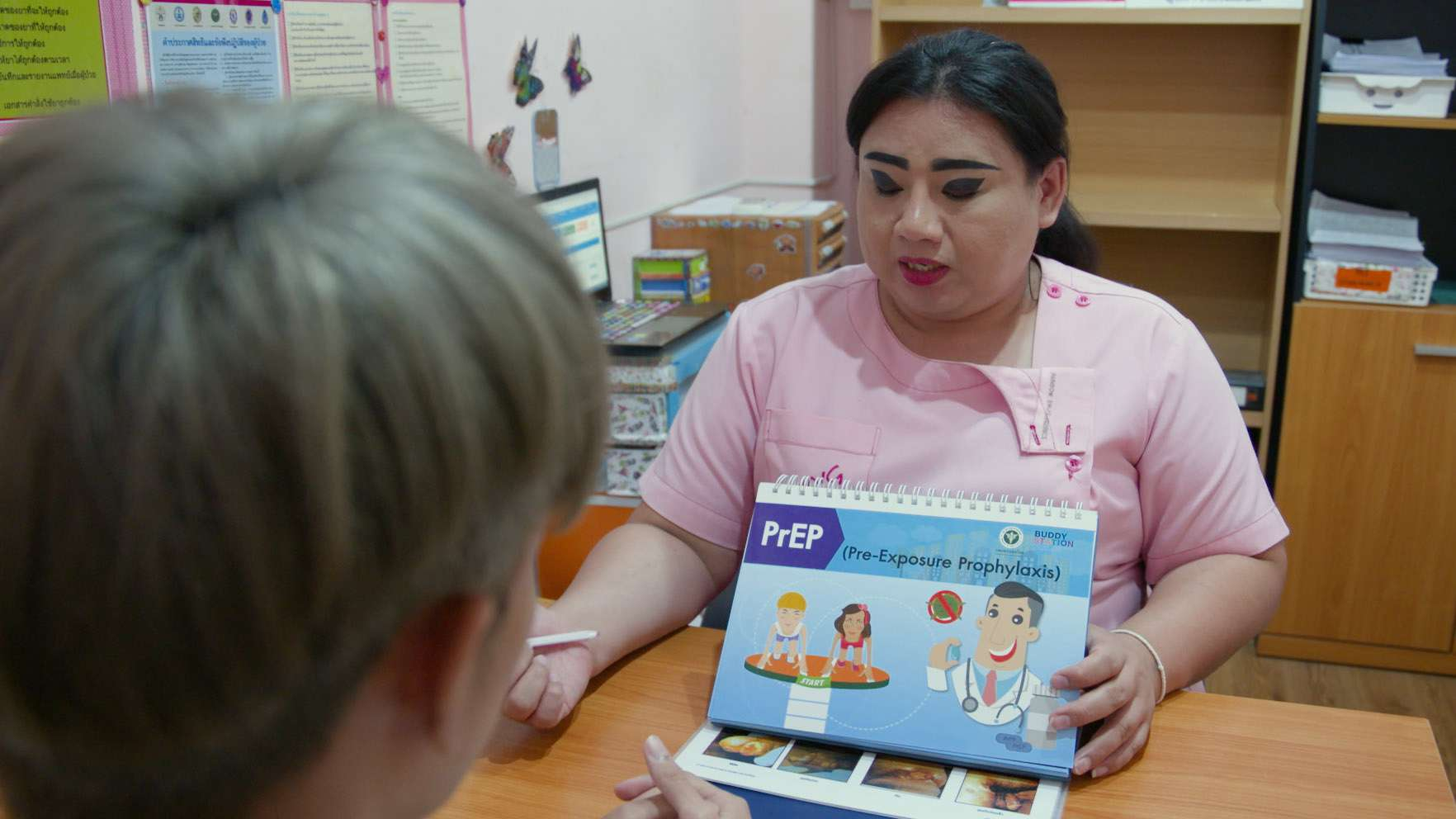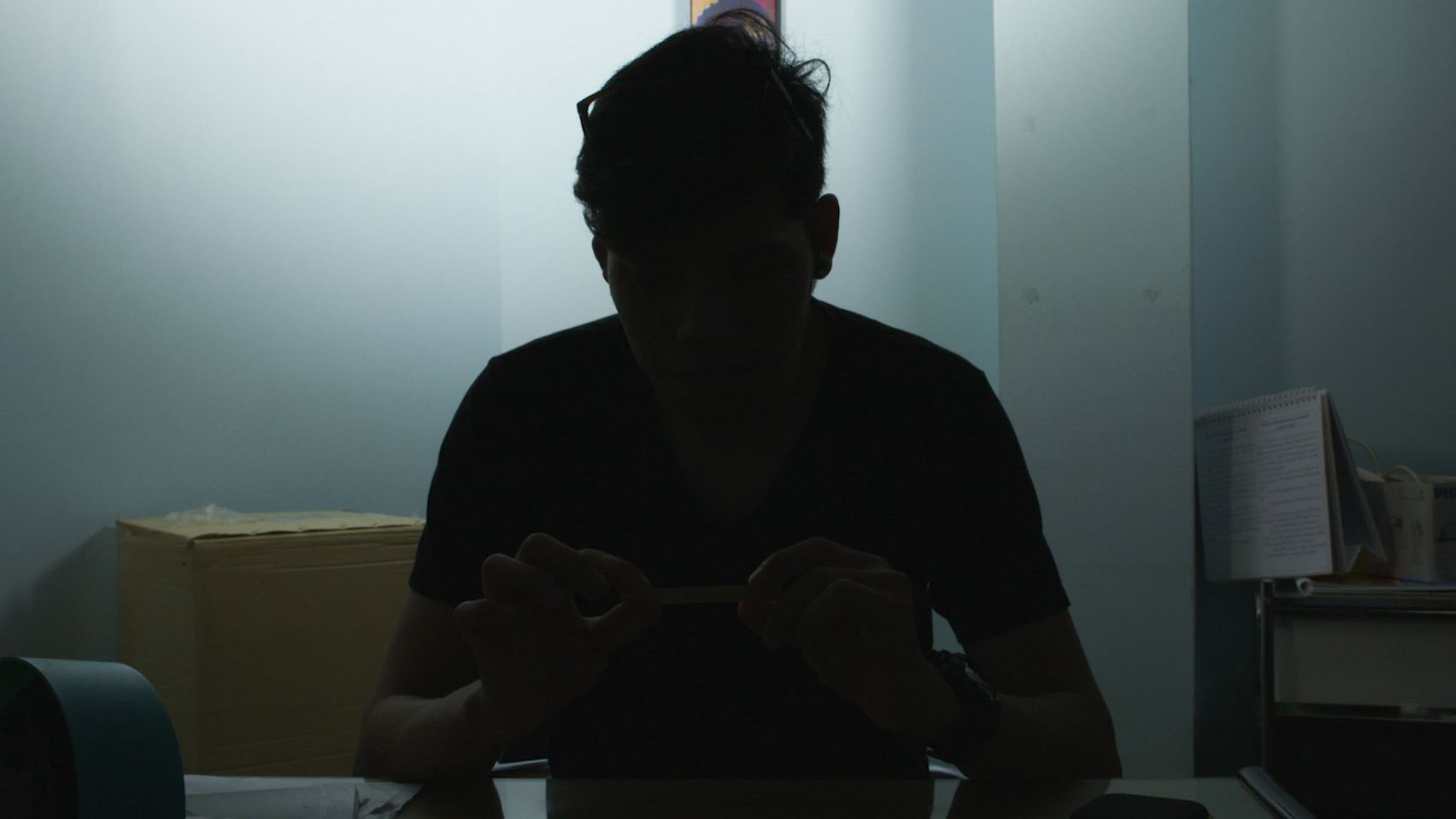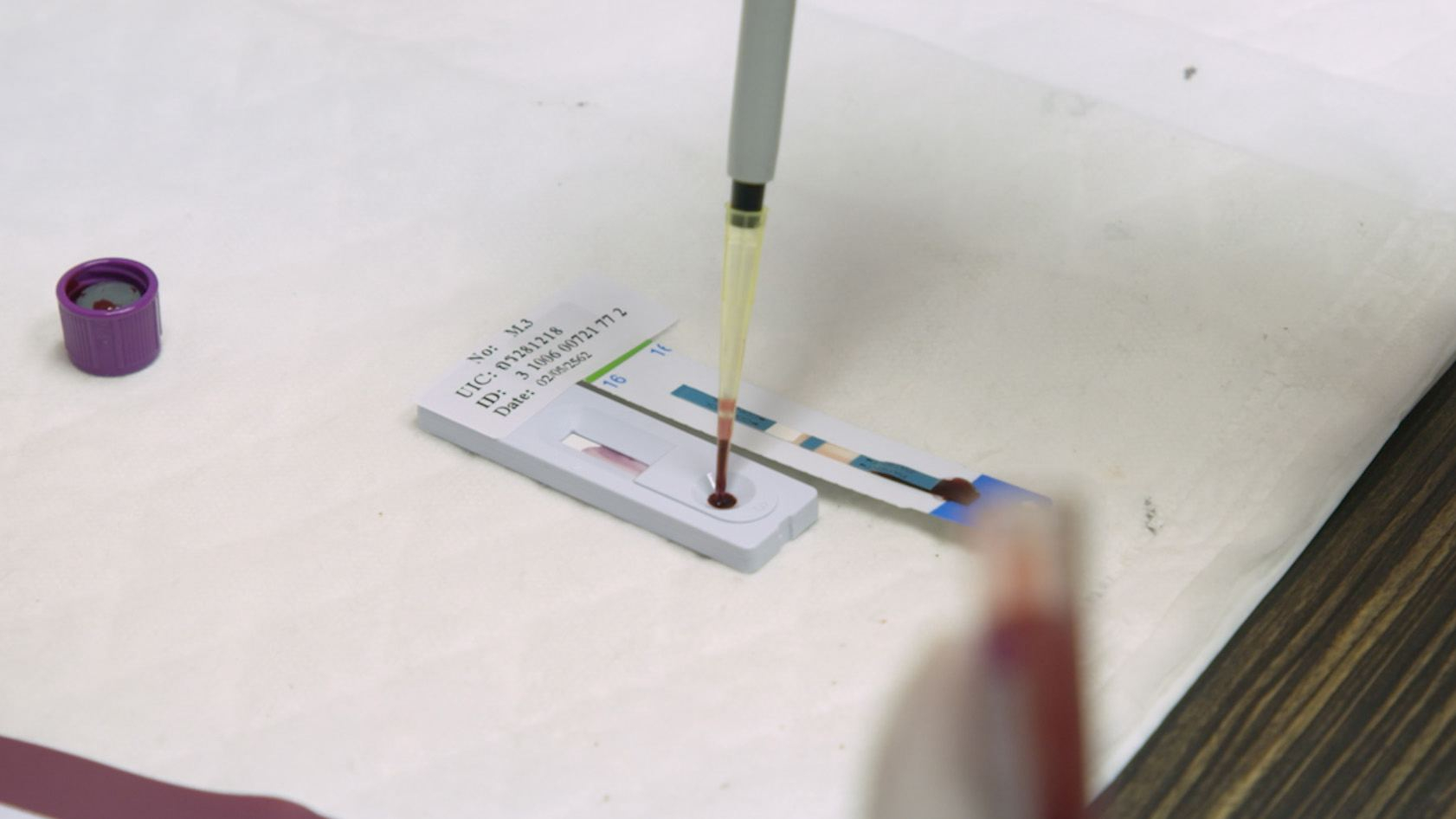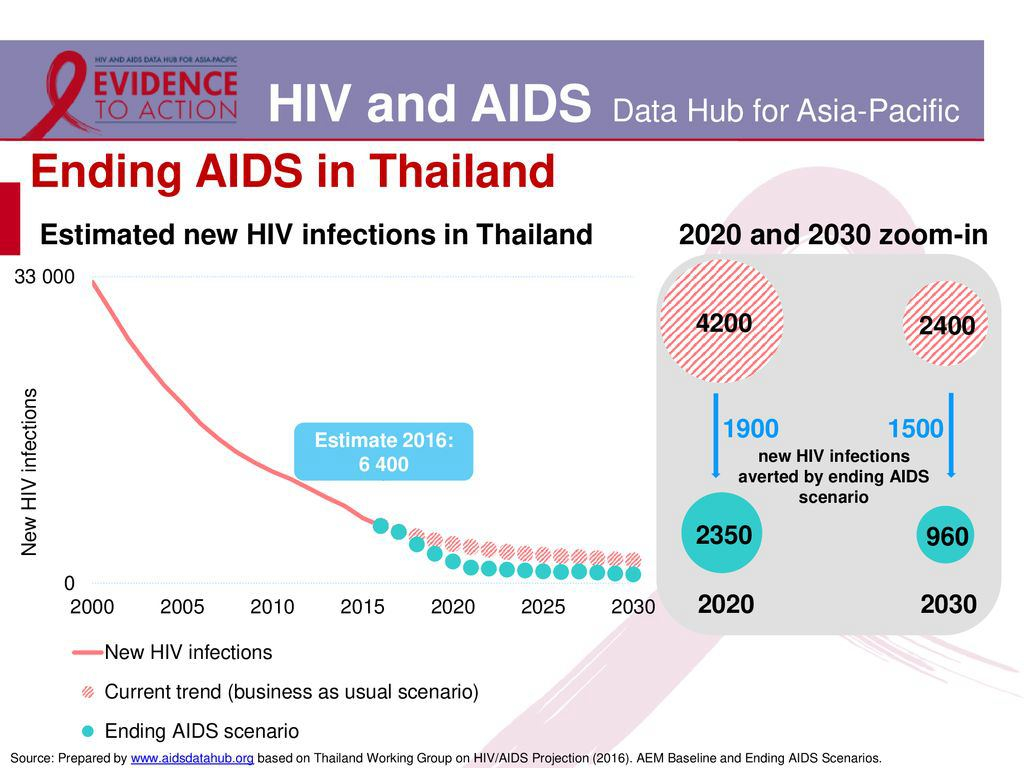
Health
17:42, 05-May-2019
Thailand's FDA approves HIV self-test kits
By Dusita Saokaew

A drop of blood, a single test strip and about 20 minutes later, the results are in. This is possibly the longest 20 minutes of Payu's* life, as he sits alone at a table staring at a test strip as it absorbs that drop of blood. Soon, lines will appear. Two lines would indicate he may be HIV-positive, one line, that he is virus free.

HIV self-testing: Thailand's FDA approves HIV self-test kits for public sale. /CGTN Photo
HIV self-testing: Thailand's FDA approves HIV self-test kits for public sale. /CGTN Photo
Payu belongs to the high-risk population that Thailand's Food and Drug Administration (FDA) is targeting with the recent approval of HIV self-testing kits. While the number of people living with HIV/Aids in Thailand has been declining over the past two decades, the country remains one of the hardest hit in Asia.
"There are groups that don't want to be tested at hospitals like youths, men who have sex with men, or intravenous drug users," said Dr. Tares Krassnairawiwong, secretary general of Thailand's FDA. "We want to reach these groups with this new testing method."
In 2017, the number of new infections was around 5,500 cases – that's about 15 cases each day. Of that, at least two positive tests are delivered to patients at this community-led clinic in the heart of Bangkok's red light district.

HIV testing: Many community-led HIV clinics in Thailand offer free HIV testing in the hopes that more and more people get tested for HIV. /CGTN Photo
HIV testing: Many community-led HIV clinics in Thailand offer free HIV testing in the hopes that more and more people get tested for HIV. /CGTN Photo
Thailand's HIV testing method has not changed significantly over the years, in that it has to be done under the care of doctors or medical professionals. But soon, the testing paradigm will change when self-test kits hit the mass market at a price around 10-30 U.S. dollars.
Thai healthcare experts were applauding this decision by the FDA and hailed it a breakthrough in the battle against HIV. "If we want to end AIDS before 2030, we can't sit and wait for people to go to clinics," said Chamrong Phaengnongyang, deputy director of the Service Workers In Group (SWING) Foundation. "We are very excited about this approval. It gives people more options in testing; it's faster and more convenient."

Ending AIDS: Thailand's Ministry of Public Health's new national AIDS strategy aims to end the AIDS epidemic as a public health threat in Thailand by 2030. /Photo via aidsdatahub.org
Ending AIDS: Thailand's Ministry of Public Health's new national AIDS strategy aims to end the AIDS epidemic as a public health threat in Thailand by 2030. /Photo via aidsdatahub.org
But a major concern, once these test kits are mass distributed, is that leaving people to test on their own may lead to self-harm without proper psychological counseling and understanding about the virus.
Whatever the method – test at home, or at clinics, for health workers, it really doesn't matter because, in the face of infectious disease, knowledge is power.
For Payu, tests like this provide him the knowledge to make choices on the options for treatment or prevention. Luckily, the test shows one line. He breathes a huge sigh of relief that, for now, it will be prevention, not the treatment that he will be thinking about.
* Names have been changed to protect his identity.
(Cover: At SWING Foundation, counseling is provided to people before and after HIV testing. /CGTN Photo)

SITEMAP
Copyright © 2018 CGTN. Beijing ICP prepared NO.16065310-3
Copyright © 2018 CGTN. Beijing ICP prepared NO.16065310-3